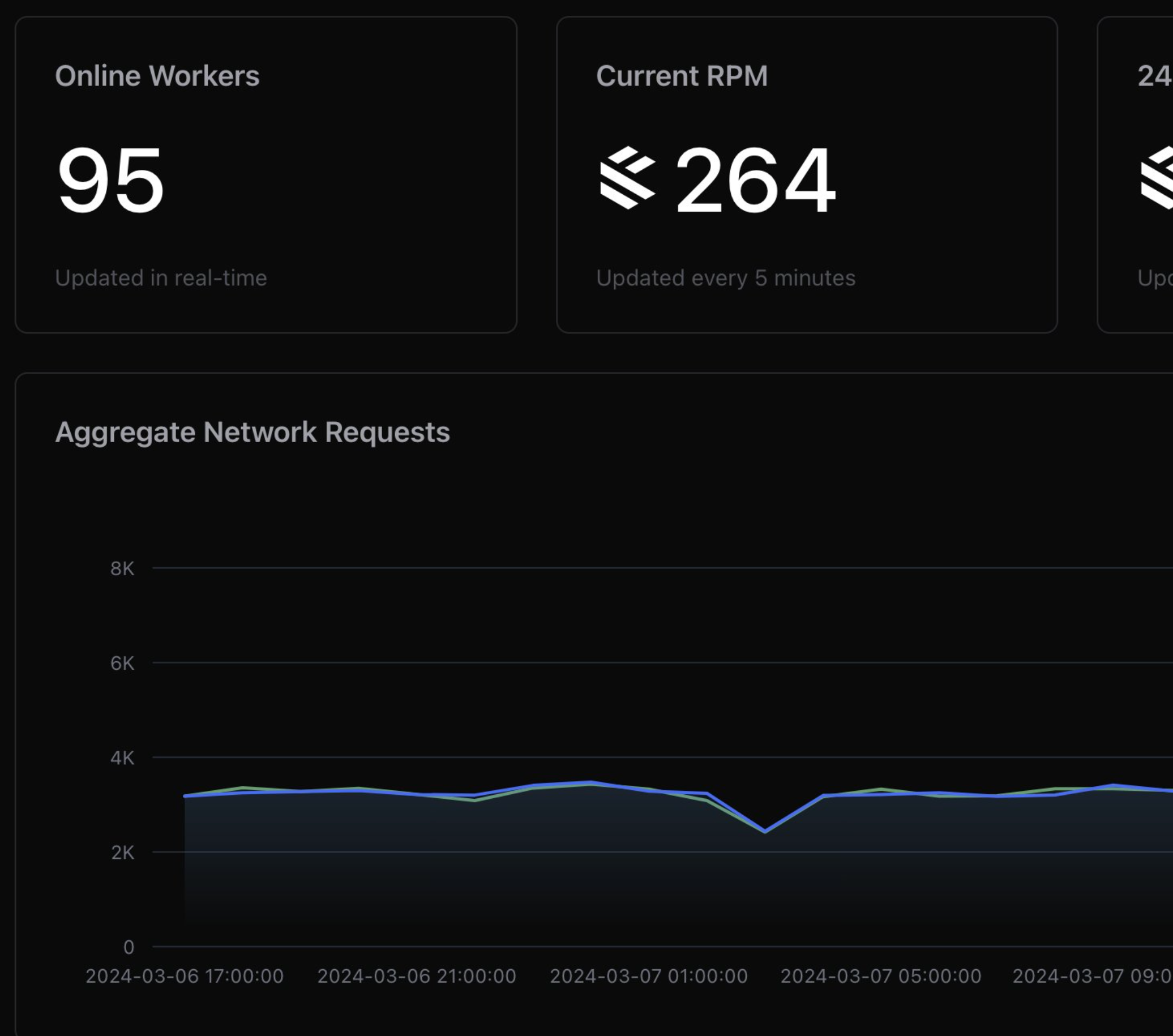It feels good to be proven right, to be vindicated. For me these moments are few and far between, so the recent ones stand out in my memory - especially because they brought about polar reactions.
The first incident was after three months of fundraising, when the time came for me and my partner to decide on which of the offers on the table we should accept. We had about three real offers. One was about to explode, and a fourth was waiting on the wings in uncertainty. In what my partner calls the only real argument we've ever had (every couple has one, I was glad we got it out of the way), we ended up fighting for different offers. His side was the one that promised the better valuation, but I found it mired in difficulty. The lead was only willing to take a small part of the round, and while we had a lot of it filled up, there was still much to go. Fundraising for three months with a team of two had hurt our business dearly, and the closest reasonable estimate from this lead's prior investments told us six months to close. Six more months of due diligence and corralling a party round had a good chance of putting us dead in the water.
My choice had a smaller valuation, but the lead was considerably more interested and invested in what we wanted to do, and in us as people. It represented a shorter close, and more importantly it represented investors who were investing in us. The disagreement persisted for several weeks, and while we dug in a little into our positions both of our arguments made complete sense. In the end we chose the latter, but the weight of the decision lingered, and I found myself wondering if I'd ever know for sure if this was the right call. Something like this, you wonder if every future outcome with the party would forever be tied subconsciously to my vouching for it - to the both of us, but especially to me. I felt responsible for it, but doubted we'd ever know what could have been.
Against all odds, we found out for sure. A month into due-diligence, our second biggest investor (about 40% of the round) pulled out silently. We were uninformed for weeks, our first information about this coming from the lead. Trying to learn more, we weren't given a clear reason, but a very clear shutter on appeals. Finding out from our lead, we were assured in the same moment that they would be making up the difference. Knowing for a fact that the other two offers we were seriously considering would have completely evaporated at needing to fill this allocation, it was clear we had made the right choice. I was happy to finally know - in this profession moments of certainty are a rare thing.
The second was a Monday. We had agreed terms with all investors and the paperwork was done, and we were meeting with the lead in the afternoon, expecting to sign. That morning at breakfast, I remember a collague congratulating us on closing. I'm not completely sure why, but I found myself involuntarily reminding him that nothing was done until it was done, and that there was many a slip between the cup and the lip.
I was right. We walked into a room of sombre expressions, and knew something was terribly wrong. We were told the deal was buried with no chance of saving it. They cited personal reasons, lightly explained. I was right, but I did not want to be this time.
§Background
I co-founded Greywing six months ago, with the intention of building a SaaS-enabled marketplace for physical security. We secured pre-seed funding, built a product, took it to 130K total market volume in a month of release. With our sights on the next round, we looked to the next round with the intention of growing the company from where it stood. Beautiful start right out of the gate. Until the very last moment, it looked like a sure thing, a home run racing into the sky.
We didn't.
This is not a story of failure, but it contains many failings. Many of them mine, the majority of them unattributable - results of things we didn't know we didn't know, the emergent nature of human interaction, and sometimes just chance. We had over a hundred meetings, three term sheets, and one other offer for funding that wasn't a term sheet. What I'm hoping to do here is to provide an overview of what it was like, and in doing so put something out there that could have helped me, six months ago. I hope it helps you. The American market often speaks the loudest, and sometimes that can drown out cultural differences and the nuances of raising outside of Sand Hill road. Every market is different - and more visibility helps us all.
Speaking anecdotally, I'll cover the things we know helped us, the things that hurt us or almost hurt us, and some conventional wisdom that didn't hold up.
§What helped us
I'm sure none of the things below are new, but they were what we found the most useful, and concretely so.
§1. Regular updates
I cannot stress how much this helped. Investors are in a strange job, and this is especially true for seed investors. An early stage investor is often approached by a start-up with no product, no real traction, just a few founders and an idea. This is the worst place to start from. This early, the idea matters 1% if that; execution and team is everything. We were ahead of the pack: we had strong traction, a good team with deep expertise in tech and security, strong financials and a completed product. Despite this, I'd estimate about 40% of our meetings would not email us back until we sent them an update. Every week, we would send out an update and watch as replies came in within the hour.
Understandably so. You know you work hard and move things, but it looks very quiet from the outside - unless you say something. A regular update (much like the one your Mom keeps asking for) lets someone look in to see a company in motion, the founders at work. It provides them with more data to assess you past the initial pitch - and this is data you want to give. Even if some of it doesn't impress, it still shows tenacity and paints you as a human being willing to learn from your mistakes. No one expects founders (or anyone) to make all the right moves; but they would like to see what you do when things go wrong.

In our update emails, we convey four key pieces of information. Good news, bad news, what we did last week and what we're planning to accomplish next week. If we had a lot to say we sometimes split them up into business, tech and fundraising. That last topic was us going out on a limb, but it preempted questions we answered in person anyway, and definitely explained where our time went when we were spending a good chunk of it on meetings. Setting the goals (which are ideally small and not too lofty) allowed us to look ahead, and look behind each week to see what we couldn't do and why. It kept us honest to ourselves, and I'd like to think that showed.
Sending the emails also had the benefit of helping us find the right investors. The old saying is "if you want money, ask for advice. If you want advice, ask for money", and we did walk away with advice in a lot of meetings. Sadly I came upon this quote too late to start asking for advice instead.
That aside, good advice is golden. Investors are in the key position of seeing the market and looking past the founder blinders you put on when you focus on a singular vision. Sending updates allowed the best of our investors to look into the specifics of the company and offer their advice, and in doing so separated themselves to us as valuable beyond their investment. These are people we still turn to for help, and hold in high esteem.
So, updates - absolutely. Send one out even if you're both going on vacation, if only to say that. Way, way better than saying nothing, which is still better than only showing up to ask for money.
§2. Know when not to fluff
The inverse is also true. Pitch inflation is a real thing, and one that we fought tooth and nail, but perhaps lost a few times. If the market is used to inflated decks that promise big data before having 20 rows in a database, or AI-everything and multi-billion dollar carve-outs, it is incredibly hard to be honest and stick to what you believe. If everyone knocks 80% off of what you're saying to get to the truth, not inflating can be a problem.
What worked for us was pitching up, but being honest. "Data? Yes, that's a potential use case and here's our modelling, but none of this works unless we can get the existing industry to be digital in the first place; we're not looking at analytics for at least a year."
§3. Do the math yourself
Some things make you feel like an idiot for not having thought of them before. Looking at our financials like an investor was one of those. We initally built our financials by looking at the things we wanted to do, our assumptions about the market, our expected burn, and our forecast. Nothing wrong with this, except we didn't really try to look at it from the other side. If we did, we also have had the best and worst case scenarios of our market assumptions. We would also have known what kind of ROI we were promising in each one. It was there, and we knew how to do it, we just didn't until we were asked.
§What hurt us
Again, take these with a pinch of salt and know that while nothing is new under the sun, everything has a long tail where it will fail to hold. That said, these were some mental and occupational traps I'd advise steering clear of.
§1. Forecasts are nothing more than forecasts
Point 3 above asks you to do a few things investors would do in your financials, but I would be wary of letting investors or yourself believe in it too much. The only thing you know about projections this early is that they are wrong. Don't fall into the trap of valuing your company with money you don't have yet, and holding on to things that have no defined worth yet. A little might be okay, but if you believe in your future with double digit precision, you've gone off the reservation - so keep the people who read your forecasts from falling into the same pit.
Then why do it? A detailed forecast lets you write down - in discrete form - your assumptions, even the things you didn't know were assumptions. I can say with almost complete conviction that you will be wrong on every count. You'll either undershoot or overshoot all of them. Which direction and by how much will let you reevaluate what made you think the way you did in the past. For an early stage company, it's valuable journaling.
For investors, it lets them evaluate your knowledge of the market that they expect you to master, and see how ambitious you are. It's more data. So definitely do it, but don't believe the platonic ideals of your forecasts.
§2. Everything is useful, especially a no
This is something I tell myself over and over again, because I find myself in category of people that take a no to heart more than I know I should. It feels like a rejection - which it is, just not of everything - and evokes a desire to move on. Don't. Stay in the no, because it's just as valuable as a yes. For starters, a no is usually just a specific no. Find out what else is on offer - it could be advice, it could be a relationship, or it could be a yes, just way down the line. Some of the pivotal moments of this company came from no's. For another, find out why - especially if you hate a no. Finally, if you're not convinced yet, here's a more superficial reason: sticking around after a no makes you look like a better person who can handle rejection, who won't bolt at the first sign of trouble.
§3. Don't spend cheques until they've cleared
This is the one that didn't hurt us. This is the one thing we emphasized despite our better instincts, and it is what ended up saving us. I don't mean in the obvious way - most of the founders I know are smart enough not to spend money they don't have, at least on the broad strokes. They hold off on getting the office, or before raising payroll. They keep an eye on the burn.
What is a lot harder is trying to curb lifestyle inflation as a company when you're finalising paperwork on what looks like a done deal. New CRM that's $50 a user a month? No problem. Conference visits? We could probably cover that with existing revenue. New SaaS subscriptions for development, and more staging servers while we're at it? No problem. None of these individually pose a threat, but taken together they can leave a company dead or bleeding out of a thousand cuts. Especially if something unexpected happens, like it did to us. What I've relearned through this process is that you should plan like the company you intend to build, but spend like the company you are, at least until you actually have what you intend to spend.
I have to point out that I might not be neutral here - we're the posterchild for 'shit happens', so there's definitely an element of confirmation bias. None of the easily foreseen problems really affected us, but we had setbacks we simply didn't expect, always at the last minute, and always completely unexpected.
§Shit does happen
You've already heard the pivotal points of the story, but I must mention that there is absolutely no ill will towards any of the parties mentioned. We're all making the calls we think are best for ourselves and our concerns. This early, the margin of error at estimating the prospects of a company is way too high for any call to be right or wrong yet. Most everything at this stage is just conjecture. For every investor we met, we learned something, and I can honestly say that Greywing is a better company today as a result.
We're still alive and healthy, if a little worse for the wear of fundraising. We're looking at 2020 to be the year that proves us right or wrong. If we're wrong, I tip my hat to those that saw it before me. If we're right, we'll be a stronger company for having done it this way.
§Not always true
If you're still with me, here's something I was told to expect, but that I encountered exceptions to more than the default:
A lot of people will tell you that "nothing is standard" and that anything presented as "standard provisions" is a negotiating ploy to peer-pressure you into terms you disagree with. This leaves out quite a bit of nuance. There are "standard provisions", insofar as there are provisions which are seen in many contracts and considered generally acceptable by most investors. It is true that these terms are often more flexible than the other side would like you to believe. However, there are valid reasons to fight for standardisation - from either perspective. Changing some clauses can be a very work-intensive process, which may not always be worth it. Also consider the impact on the investor and yourself if a subsequent round insists that the terms be reset, and who stands to lose.
The best way forward in such a scenario for us was cultivating the right relationships and keeping an open mind. Is there a legitimate reason behind it? Is this a test of strength, or a true line in the sand? Are you talking to the right person? Is this open to a trade? Knowing more is always better of course - but sometimes it's hard to do so without knowing the right questions.
Not a newsletter





